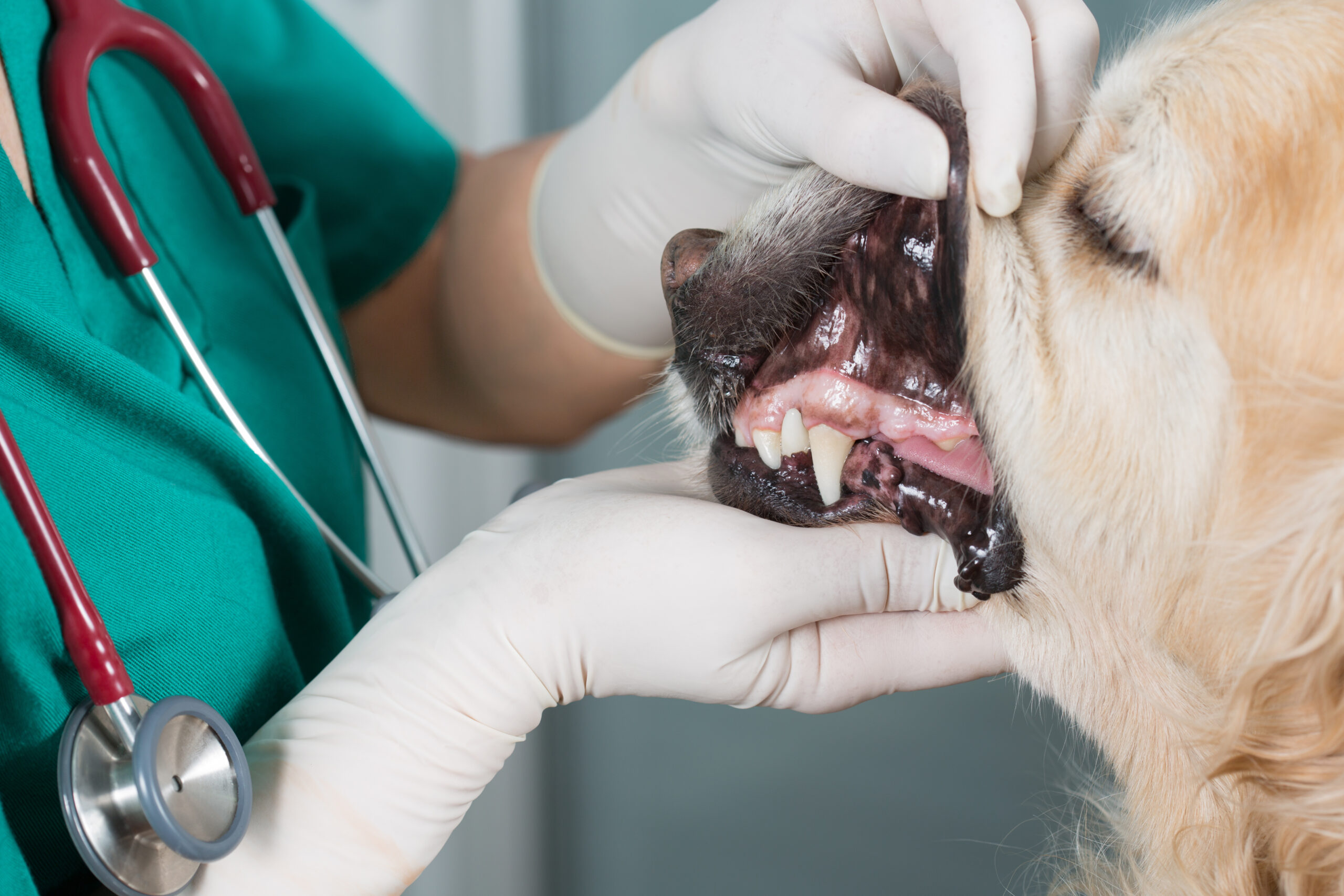
Did you know that 80% of dogs and more than 50% of cats over the age of 3 suffer from some form of dental disease? Despite its prevalence, the devastating effects of periodontal dental disease in pets often goes unnoticed until it has progressed into a serious issue. One of the most common forms of dental disease in pets is periodontal disease, which can have devastating effects on their overall health and well-being if left untreated.
In this article, we’ll explore the causes, symptoms, and prevention of periodontal disease in pets so you can keep your furry friends happy, healthy, and pain-free.
What is Periodontal Disease?
Periodontal disease is an infection and inflammation of the tissues surrounding a pet’s teeth. It typically starts with plaque buildup, which hardens into tartar if not removed. Over time, tartar accumulates beneath the gumline, leading to infection, gum recession, and, in severe cases, tooth loss.
Left untreated, periodontal disease can also contribute to serious systemic issues such as heart, kidney, and liver problems, as bacteria from the mouth enter the bloodstream.
Signs and Symptoms of Periodontal Disease in Pets
Periodontal disease can develop gradually, which is why many pet parents don’t notice the problem until it becomes severe. Here are some common signs to watch for:
- Bad breath (halitosis): A telltale sign of dental issues.
- Red or swollen gums: An early indicator of gum inflammation.
- Yellow or brown tartar buildup on teeth.
- Difficulty eating: Pets may chew on one side of their mouth or drop food.
- Pawing at the mouth: A sign of discomfort or pain.
- Loose or missing teeth: Advanced dental disease can lead to tooth loss.
- Behavioral changes: Irritability or withdrawal due to oral pain.
How to Prevent Periodontal Disease in Pets
1. Regular Brushing
Brushing your pet’s teeth is the gold standard for preventing plaque and tartar buildup. Use a pet-safe toothbrush and toothpaste, as human products can be harmful to pets. However, brushing has its limitations:
- Many pets resist having their teeth brushed, making it challenging to maintain consistency.
- Brushing may not reach below the gumline where tartar and bacteria accumulate.
- It requires daily or near-daily commitment for maximum effectiveness.
While brushing is essential, it should be part of a broader dental care routine.
2. Dental Treats and Chews
Dental chews and treats can help reduce plaque and tartar while giving your pet a fun and tasty reward. For an effective, natural option, consider pawTree’s new Plaque Control. These chews are specially formulated to fight plaque buildup, freshen breath, and support healthy gums—all while being a delicious treat your pet will love.
3. Diet and Supplements
Feeding your pet a high-quality diet and incorporating supplements, like those from pawTree, can support oral health by reducing plaque and tartar buildup.
4. Regular Veterinary Checkups
Routine veterinary exams include oral health assessments. Your vet can identify early signs of dental disease and recommend professional cleanings if necessary.
What About Professional Dental Cleanings?
Professional dental cleanings under anesthesia are essential for removing tartar below the gum line and preventing advanced periodontal disease. However, they are not without risks, which is why they should be carefully considered and performed by experienced veterinary teams.
Potential Risks of Dental Cleanings Under Anesthesia
- Anesthetic complications: Pets with underlying health issues or older pets may be at higher risk for complications during anesthesia. Bloodwork and a pre-anesthetic exam are crucial to mitigate this risk.
- Stress on the pet: Some pets may experience anxiety during pre- and post-cleaning procedures.
- Cost: Professional dental cleanings can be expensive, especially if X-rays, extractions, or advanced care are needed.
- Recovery: Pets may take time to recover from anesthesia and may need to follow a special diet during the healing process.
While these risks are minimal for most healthy pets, it’s important to consult with your veterinarian to determine the best approach for your pet’s individual needs.
Why Prevention Matters
Preventing periodontal disease not only ensures your pet’s comfort but also protects their overall health. Oral infections can spread to other organs, causing serious complications that could shorten your pet’s lifespan.
By staying proactive with your pet’s dental care, you can give them the gift of a healthier, happier life.
Take Action Today
If you’re unsure about your pet’s dental health, consult your veterinarian for an evaluation. They can guide you on the best practices for keeping your pet’s teeth clean and disease-free.
Your furry friend relies on you for their health and happiness. Taking steps to prevent periodontal disease is one of the best ways to show them how much you care.
Looking for natural and holistic ways to support your pet’s oral health? Reach out to learn more about pawTree’s all-natural Plaque Control Chews and other products
